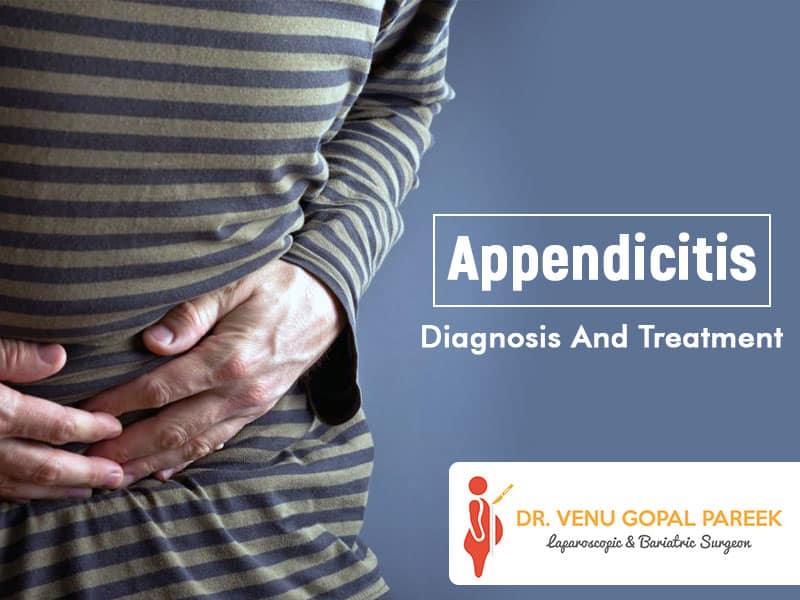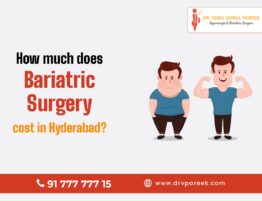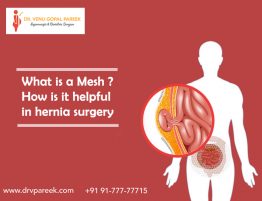
The most common atraumatic surgical emergency is appendicitis. It can affect patients of all ages, but the frequency is highest in the second and third decades. Acute appendicitis is one of the most common causes of abdominal pain in children over one year, and the most common non-obstetric surgical emergencies during pregnancy. Consider the diagnosis at any age with atraumatic abdominal pain, even though the incidence is highest in early life.
Read this article to know more about appendicitis, causes, symptoms, diagnosis, and treatment.
What Is Appendicitis?

Appendicitis is an inflammation of the appendix. It is a medical emergency that almost always requires surgery to remove the appendix as soon as possible. Fortunately, you can live well without it.
Where Is Appendix Located?
This 3 1/2 inch long tube extends from your large intestine to the lower right side of your body.
The Role Of the Appendix And Life Without It

It is not entirely clear what role the appendix plays in the body. For a long time, it was considered a vestigial organ that did not play a beneficial role. However, recent research shows that it has several immune functions that help our system recover from digestive disorders.
Specific types of tissue associated with the lymphatic system that fight infection are in the appendix. This tissue stimulates the growth of several beneficial intestinal bacteria and supports digestion and immunity. Studies show that the intestinal mucosa has biofilms, a thin layer of germs, mucous, and immune system molecules, and this biofilm seems to be the most prominent in the appendix. Some experts believe that if certain diseases eradicate beneficial intestinal bacteria in the digestive tract, the bacteria leak out of the biofilm in the appendix and recolonize the intestine.
However, removing an appendix does not appear to have any harmful or adverse health effects. People can live genuinely healthy lives without this. In some cases, eliminating appendicitis seems to have a protective effect. Research has shown that young people who have appendix surgery are less at risk of developing ulcerative colitis.
What Is The Most Common Cause Of Appendicitis?

There is no clear cause of appendicitis. Stools or appendicolith is considered as one of the reasons for appendicitis. Bacteria, viruses, fungi, and parasites can cause infections that cause tissue swelling in the appendix wall. Various infectious and organisms can cause appendicitis, for example, cytomegalovirus, Schistosoma species, adenovirus, Yersinia species, Histoplasma species, Mycobacteria species, Strongyloides, actinomycosis, and pinworms. Tissue swelling from inflammatory bowel diseases such as Crohn’s disease can also cause appendicitis. Appendicitis is not an inherited disease and does not transmit from person to person.
What Are The Symptoms Of Appendicitis?

The classic symptoms of appendicitis are:
- Abdominal pain on the right or pain near the navel that moves downward. It is usually the first symptom.
- Anorexia
- Nausea and vomiting shortly after the onset of stomach pain
- Swollen Stomach
- 99-102 degrees of fever
- Problem with passing gas
Less common symptoms of appendicitis are:
- Blunt or acute pain in the upper or lower abdomen, or back
- Peeing painful or difficult
- Vomit before stomach pain begins
- Severe cramps
- Constipation or diarrhoea with gas
If you come across any of these symptoms, see a doctor immediately. Timely diagnosis and treatment are essential. Do not eat, drink or use painkillers, antacids, laxatives, or heat pads.
How Doctor Diagnosis Appendicitis:

Doctors most often suspect appendicitis based on your symptoms, medical history, and physical examination. The doctor can confirm the diagnosis with ultrasound, X-ray, or MRI.
Medical History:
A Doctor will ask specific questions about your symptoms and medical history so you can rule out other health problems. The doctor will want to know:
- When your stomach pain started
- The exact location and severity of your pain
- If other symptoms appear
- Your other illnesses, previous illnesses, and surgical procedures
- whether you use drugs, alcohol or illegal drugs
Physical Exam:
Doctors prescribe laboratory tests to confirm the diagnosis of appendicitis or to find other causes of stomach pain.
Lab Tests:
- Blood test: Doctors send blood samples to the laboratory for examination. A high white blood cell count shown in a blood test could be a sign of infection. Blood tests can also indicate dehydration or an imbalance in fluids and electrolytes.
- Urine test: Urine analysis is testing urine samples. You send urine samples in containers to the lab or hospital. Doctors can test urine in the same location or send it to a laboratory for testing. Doctors use urine analysis to rule out urinary tract infections or kidney stones.
- Pregnancy Test: For women, the doctor can also order blood or urine samples to check if they are pregnant.
Imaging tests:
The most common treatment for appendix pain is the removal of appendix or surgery to eliminate Doctors see imaging tests to confirm the diagnosis of appendicitis or to find other causes of stomach pain.
- Abdominal ultrasonography
- Magnetic resonance imaging (MRI)
- CT Scan
It shows the images, which can show signs of:
- Blockage in the appendix lumen
- Burst of appendix
- Inflammation
- Other sources of abdominal pain
Women who have the potential to give birth must undergo a pregnancy test before a CT scan. CT radiation can be dangerous for developing fetuses.
Treatments
The most common treatment for appendix pain is the removal of appendix or surgery to eliminate appendicitis. However, in some patients, the appendix can burst and cause abscess or accumulation of pus. In this case, your doctor may recommend percutaneous abscess drainage to remove fluids from your body and perform an appendectomy. Patients who undergo percutaneous abscess drainage stay in the hospital for several days. Follow-up must and usually done on an outpatient basis, and your interventional radiologist will monitor you to ensure that your recovery is going according to plan.
Antibiotics are effective against mild infections to treat appendicitis, but this is rarely the case. In most cases, the surgeon will remove the appendix. In most cases, keyhole surgery or laparoscopy performed by a doctor to remove the appendix.
Laparoscopy:

Laparoscopy, keyhole, or minimally invasive surgery (MIS) includes the following steps:
- The surgeon inserts a thin tube or laparoscope into the abdomen, which has a small camcorder through a hollow instrument known as a cannula.
- The surgeon can see the inside of the enlarged abdomen on the monitor.
- The small instrument responds to the surgeon’s hand movements and the excision of the appendix with a small abdominal incision.
It is a precision operation with minimal blood loss and small incisions. As a result, recovery time is shorter than with open surgery, and there are fewer scars.
Open surgery:
In some cases, a larger incision required so that the area inside the abdominal cavity can clean, this may require if :
- The appendix burst and the infection spreads
- Appendicitis causes abscesses
- The patient has a tumour in the digestive system
- Patients are women in the third trimester of pregnancy
- The patient has undergone many stomach surgeries
After surgery, the patient receives intravenous antibiotics.
What If Surgery Gets Delayed:
If symptoms persist for at least five days, your doctor can recommend an antibiotic regimen to reduce the size of the appendix and eliminate the surrounding infection. They can operate later. If there is an abscess, the doctor can drain it first and undergo surgery then.
Draining An Abscess Before Appendix Surgery:
A tube needs to be inserted through the skin to drain the fluid to prevent the appendix from bursting. This surgery can perform a few weeks later once the disease is diagnosed.
Complications of appendicitis can be life-threatening. You must visit a doctor if you suffer from appendicitis.
Recovery Time:
With keyhole surgery, patients can usually return home after 24 hours. The first few days may experience constipation, pain, and bruising. The patient might experience pain in the upper arm because gas pumped into the stomach during the procedure, which is not uncommon.
- Pain relief can help deal with the pain
- If open surgery is needed or someone has peritonitis or other complications, they may need to stay in the hospital for up to one week.
- It usually takes around two weeks for normal activities to continue, but the person may have to wait 4 to 6 weeks to do more intense work.
- Your doctor will tell you about how much activity is appropriate in each phase.
- If there are signs of infection, it is essential to contact your doctor. Includes:
- Worsening of pain and swelling
- Vomiting repeatedly
- High temperature
- The operating site feels hot, or there is pus or other discharge
Conclusion:
Inflamed appendix burst and spread infectious bodies into the abdominal cavity. It can cause peritonitis, a severe inflammation of the stomach lining (peritoneum), which can be fatal if not treated immediately with strong antibiotics and mostly surgery.
Like other surgeries, appendicitis also has a risk of complications such as bleeding and infection, which the surgeon can explain in detail by a while discussing treatment options. The majority of patients undergo surgery and return to normal. If you suspect you have an urgent medical problem such as appendicitis, call Dr Venu Gopal Pareek immediately or go to the nearest emergency room. If you have questions about the appendix and appendectomy, please contact Dr Venugopal Pareek at +91 91-777-77715.







